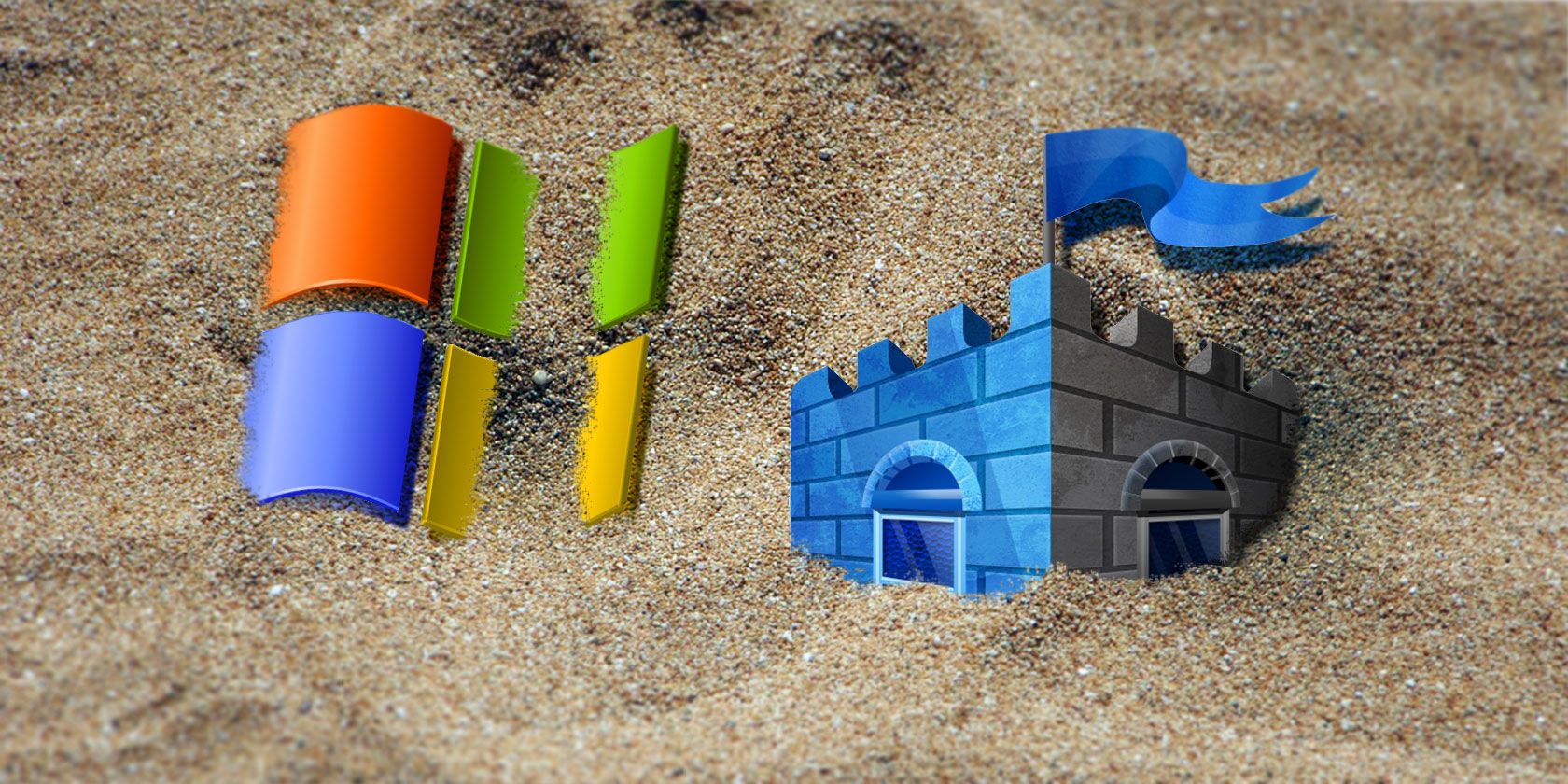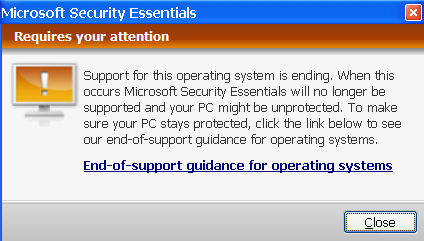There was mass outcry when Microsoft stopped supporting XP a little over a year ago. It meant "Windows Update" patches would no longer be released, and the creaking OS would become increasingly vulnerable.
At the same time that support was stopped, Microsoft also announced that Microsoft Security Essentials would no longer be available for download on XP – though they confirmed that if you already had it installed, you'd continue to receive anti-malware updates for a limited time.
That limited time has now ended.
A Slow Death
Windows XP is dying. With the launch of Windows 10 now less than a week away, Microsoft is keen to finally condemn the 14 year old operating system to the annals of history.
At the time of its release it was hugely popular. It was arguably the first OS that saw mass adoption in offices and homes around the world, and at its zenith in 2007 it controlled 76.1 percent of the market.
In more recent times XP's popularity has caused issues for Microsoft, with the question of how to get people and businesses to upgrade to newer versions of Windows being a difficult one to solve.
Unsurprising News
In fairness to Microsoft, the end of Microsoft Security Essentials updates for XP is probably the least surprising technological news of 2015.
When they announced that support was only for a limited time, it was made abundantly clear that it was only done as a way to ensure the last XP diehards were not left exposed whilst they made the switch to a newer OS.
Popups were inserted into the Security Essentials interface warning users of the inevitable, while Microsoft themselves openly said last year that "Any PC running Windows XP should not be considered protected … We strongly recommend that you complete your migration to a supported operating system as soon as possible".
What Does It Mean?
All anti-virus and anti-malware software needs to keep an up-to-date list of the latest security threats that are circling the web.
When you consider that Kaspersky Lab is detecting more than 315,000 malicious new files every day and Panda Security claims there are approximately 30,000,000 new malware threats each year, it becomes clear that keeping your anti-virus list updated is a vital part of modern computing.
Without such a list, there is no way for the software to know if you're being attacked.
The end of support for Microsoft Security Essentials means it will no longer receive the necessary new signatures (lists) to detect the latest malware. If you're still using XP, you are now a prime target for those 315,000 malicious files.
Furthermore, support for the Malicious Software Removal Tool (MSRT) has also been halted. In the past this was an integral part of XP users' ability to restore their machine if a virus did manage to slip through undetected. It used to receive new definitions on a monthly basis, but as of the 14th July it no longer receives updates.
It means that if you get a virus (which you almost certainly will), you're going to have a really tough time to remove it – all your files, data, and personal information will be at risk.
What Can You Do?
Research suggests that despite the warnings, the lack of support, and the clear security risks, Windows XP still has about a 10-12 percent market share (Net Applications placed it at 11.98 percent in June 2015).
While a large chuck of that 12 percent is on the corporate side (approximately 90 percent of global ATMs are still using XP), it still means tens of millions of home users are now brutally exposed.
The advice from MakeUseOf (and every other technology site on the Internet) is clear – stop using XP, now.
A lot of XP machines can run Windows 7 or 8, and Microsoft supply a tool on their website that will assess your machine and establish how well it will run with the newer operating systems.
If you find that your computer can't handle one of the new Microsoft releases but you can't afford a new machine, you could consider making the jump to Linux. Many Linux distros have been designed to either mimic XP or at least use the same amount of system resources, and you're certain to find one that is a good match for your needs. As an inherently secure OS, switching to Linux makes a lot of sense in these circumstances.
Finally, you could consider buying a Chromebook - they are a lot cheaper than regular computers and are a great alternative for XP users.
Other XP Anti-Viruses
Sadly, plenty of people will choose to ignore the abundant advice and carry on regardless. A cursory Google search already reveals lots of users looking for alternative anti-virus software.
This is a terrible idea – even if we overlook the fact support for XP has now stopped entirely, any replacement AV would only be a stop-gap – regardless which you choose, support for it will not last much longer.
For the developers of anti-virus programs, to continue supporting XP is fighting a lost cause that will ultimately harm their reputation. It's akin to trying to fix a burst water pipe with a plaster.
If you really insist, make sure you choose one of the market leading AV providers rather than cause yourself more problems with a little-known alternative that promises great things.
What Will You Do?
Are you still running XP? What are you going to do? What will eventually force you to abandon the antique OS and upgrade to something more modern and more secure?
As ever, we'd love to hear from you. Let us know your thoughts and feedback in the comments section below.


